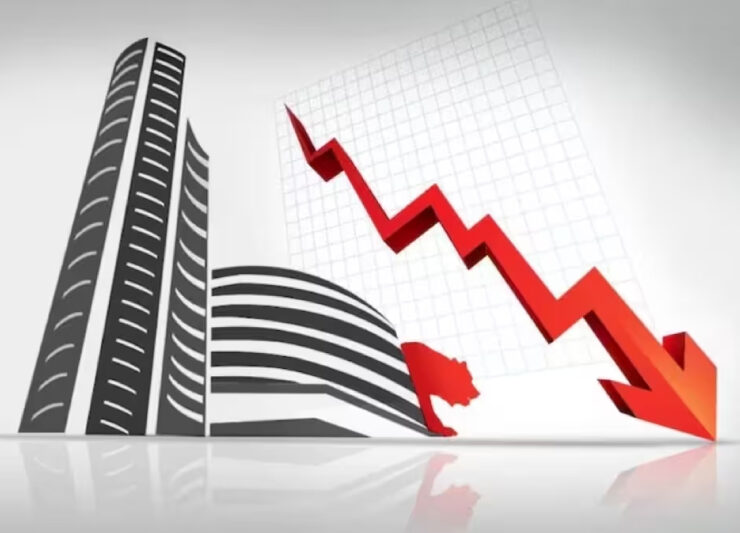While investing, keep emotions at bay

Greed and fear often cloud the judgment even of the most seasoned investor. Understanding emotions and winning over them is the key to success when it comes to investing, and life!
When it comes to investing, the behaviour we exhibit during challenging market conditions is perhaps the largest impediment to our long-term investment success.
We often chase returns, buy and sell short-term, and act on emotions. These easily cloud our judgment; irrational decisions are taken in the fear of missing out on the gains and prejudiced actions are undertaken in the fear of loss.
Behavioural finance explains the psychology of investing and pairs emotions with investments to show how emotions can cause us to make wrong investment decisions. It shows that investors are, in reality, emotional, biased, overconfident and myopic, with a distorted concept of their needs. And this behaviour sometimes creates bubbles and seasonal swings.
In stock markets, behavioural finance can help explain situations such as why we hold on to stocks that are crashing or are ridiculously overvalued, why do we jump in late and buy stocks that have peaked in a rally just before the price declines, or why do we take desperate risks and gamble wildly when our stocks descend.
Investing behaviour is largely governed by two dominant emotions: greed (in a bull market) and fear (in a bear market). Although this is an oversimplification, it is often true. We often succumb to these emotions that lead to a profound and detrimental effect on our portfolios and explains irrational market movements in the short term.
But it is important to realise that neither of these emotions forms a sound basis for making rational decisions. At the same time, having control over our emotions can make a huge difference in our portfolios’ returns (positive returns).
Bear markets are distressing and they make us question all our investment decisions. The fear that grips us in such times makes us want to pull money out of stocks and load up on cash. Nobody enjoys watching money vanish, even if it’s only on paper. And looking at the value plummeting week-after-week, we begin to believe that the market will never come back and we’ll never get our money back.
On the other hand, in a bull market phase, we all think we are smarter than the rest and have learned the secret to getting rich quick. Not only do we put our savings and switch our other investments into stocks, we even think of borrowing and investing in stocks, to become the next Warren Buffett. We start believing we possess special market-beating capabilities. This was particularly seen in the bull run India witnessed in 2007. Everyone’s stock recommendation, including a naïve investor’s recommendation, was generating exorbitant returns.
In spite of the overvaluations, people thought that the Sensex will zoom to over 30,000 levels and their stocks will keep generating higher returns. But alas, we all know what happened. Markets bombed in late January 2008 and tumbled further in the following months, and from 21000 levels Sensex nose-dived to 8000 levels, a 62% drop.
Why go so far back in 2008? You already may know what happened in March this year when Covid gripped the stock markets worldwide. Global stock markets saw a sudden crash which started sometime in late February and continued until early April. In fact, this crash was the fastest fall in global stock markets in financial history and the most devastating crash since the Wall Street Crash of 1929. As far as Indian markets are concerned, after making a peak of 42,273.87 points in Feb 2020, Sensex crashed over -38% by 23 March 2020 to 25,638.90 points.
Just as day follows night and spring follows winter, so does investor psychology follow the seasons of emotions from greed to fear and fear to greed and the cycle continues. Overconfidence in a bull market and despondency in a bear market cloud our judgment, they navigate our investment decisions and rationality loses in the process.
Refer to the chart below. It beautifully sums up typical market emotions through different cycles. If you are active in the stock market or are even an occasional investor, you will surely be able to identify with some.
Investor psychology appears to develop through a market cycle and can be seen quite clearly in the history of share markets throughout the world. These cycles often cause investors to panic and sell or delay investing available funds or hold on to their investments despite their overvaluations. They forget the overwhelming evidence that market timing is far more dangerous to their financial health than is a buy, hold, and rebalance strategy.
Many investors reduce their exposure to equities when the markets fall and sit on cash. But before making any decisions, one should think rationally, not emotionally. If there is a time to decide that we have too much money in stocks, it’s in a bull market, not a bear market.
Quite frankly, everyone feels a little edgy when the market is going South, including the investment gurus. Every market downturn is scary because the factors behind each are different. People who give professional investment advice should know this.
Instead of recommending the investors to sell when the markets are falling, they should make them aware of the uncomfortable truth: Unless you’re already independently wealthy, you need to own stocks to meet your long-term investment objectives.
Even if we may have a solid long-term investment plan, we’re likely to feel emotional when the future looks doubtful and there is panic everywhere. But that’s okay. The important thing to remember is ‘just don’t react emotionally’.
So what is that we need to understand and learn? What should we do? We should realise that the bear phase as an opportunity to invest but in good companies. And in the next bull run, we should not forget our failures.
It is important that during a bull run we take time off from the euphoria, hold our emotions, see if valuations are deviating from the fundamentals, and accordingly rebalance our portfolios and book profits. It is important to know when to sell. And I am not talking about selling the stocks that are generating good returns and keeping the losers. Another common mistake people make, because they find it painful to book losses even if the company is not doing well.
Similarly, when markets correct, it gives an opportunity to buy companies at good valuations that will benefit our portfolio in the long run. History has shown that equities have outperformed every other asset class in the long term, so stay invested in the companies with a good future outlook and a sustainable business. Over time, you’ll most likely be rewarded for your courage.
So where are we currently in the cycle of emotions? I would say we are somewhere between excitement and euphoria. But as I said, it is not timing that is important in the market (i.e. when you put money), but time is (which means how long do you stay invested for).
Shruti Jain is Chief Strategy Officer (CSO) at Arihant Capital Markets Limited. She is passionate about investor education and sustainability.








